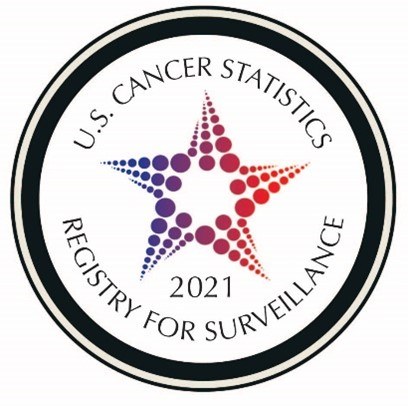Public Health & Wellness
Since 1992, the Hospital Association of Rhode Island Cancer Information System has been in contract with the RIDOH, to operate the central cancer registry system. CIS staff collect reportable cancer cases from reporting providers and process and manage data in a format and structure, determined by the CDC, NAACCR and national standard setters.
The Rhode Island Cancer Registry (RICR) was established in 1986, according to the Rhode Island Department Health (RIDOH) General Law §23-12-4 and Regulations, pertaining to population-based cancer surveillance operation and management. In 1995, RICR received federal funds from the CDC National Program of Central Registries (CDC NPCR), and registry capacity, including staffing and budget, was significantly strengthened. Since then, RICR has successfully implemented statewide cancer surveillance, meeting and exceeding national standards for timeliness, completeness and quality criteria. RICR collects detailed demographic, diagnostic, and a selective set of clinical, treatment and outcome information of primary cancers diagnosed and/or treated in Rhode Island, regardless of patients’ residential status. Data are sourced from Rhode Island’s acute care hospitals, freestanding radiation therapy centers, pathology labs, and data exchanges with a majority of the fifty states. The RICR uses the cancer data to monitor and report epidemiologic summaries of cancer incidence of Rhode Island residents of all ages and provide complete and timely data for the RIDOH cancer control and partner programs, community stakeholders, and local and national researchers for their data-driven cancer prevention and control program developments and implementations with accurate, timely and complete data.
Using a standardized data exchange agreement, RICR also transmits data to other states’ central registries, and annually submits to CDC and North American Association of Central Cancer Registries (NAACCR). CIS holds quarterly Advisory Committee meetings with representatives from reporting facilities and informs attendees about reporting requirements/standards and enhancements in data collection; and presents statewide surveillance data or quality assurance results of relevance to the cancer registrars. CIS invites all in-state reporters to networking, training, and educational meetings, including monthly NAACCR webinars and a yearly statewide registrars’ meeting.
Helpful Links
- Cancer Registry Resource Guide
- Rhode Island Cancer Registry Regulations
- Rhode Island Department of Health
- National Program of Cancer Registries
- RI Cancer Data
- Cancer Prevention & Control
- Partnership to Reduce Cancer in RI
- National Comprehensive Cancer Control Program (NCCCP)
- United States Cancer Statistics: Data Visualizations
- Cancer Facts & Figures
Census Tract Geocoding
Staging Manuals
Abstracting
Awards & Recognitions
RICR has been awarded the "gold standard" for 22 consecutive years by the accrediting body for central cancer registries, NAACCR. The accreditation process involves the examination of six distinct areas of data quality, completeness, and timeliness. Rhode Island consistently meets the highest standard in all six criteria. RICR has also been awarded the Registry of Distinction award by the CDC NPCR for eleven consecutive years.




Special Projects
RICR is currently 1 of 16 grantees participating in the NPCR Data Modernization Initiative July 2021-June 2022. This initiative looks to improve timeliness and quality of data, assist in better coordination of data activities and systems, reduce the burden on data partners, and integrate emerging technologies more effectively. RICR is 1 of 15 state cancer registries selected to take part in the CDC NPCR Childhood Cancer STAR Project. The STAR act (Childhood Cancer Survivorship, Treatment, Access, and Research Act) was signed into law to assist cancer registries in collecting and making data available on pediatric and young adult cancer cases within weeks of diagnosis rather than years. RICR has demonstrated successes in the previous NPCR-led enhanced surveillance projects: Comparative Effectiveness Research (CER), Patient-Centered Outcome Research (PCOR) and Early Case Capture of Pediatric and Young Adult Cancer (ECC-PYAC).
